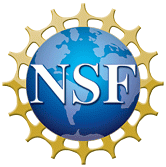
By Heather King - August 2013
PAPER CITATION
Lumpe, A., Czerniak, C., Haney, J., & Beltyukova, S. (2012). Beliefs about teaching science: The relationship between elementary teachers’ participation in professional development and student achievement. International Journal of Science Education, 34(2), 153–166.
A substantial body of evidence has built up around the nature and effect of professional development (PD) for teachers. Research emphasizes the importance of aligning the training with curriculum requirements, supporting collaboration among teachers, identifying opportunities for classroom application, and ensuring that training occurs over an extended time. The authors of this paper, however, highlight a further critical factor: aligning the programme with the beliefs held by teachers.
The study explored the following research questions:
- Do teachers’ beliefs about teaching science improve after involvement in intense professional development?
- What demographic factors predict teachers’ beliefs?
- Are teachers’ beliefs about teaching science predictive of student achievement?
The study focused on a PD programmme led by two large universities and involving 450 elementary teachers from two large urban school districts and a smaller suburban district in the midwestern U.S. Incorporating the recommendations articulated in the literature, the programme provided a total of 80 contact hours; was structured around a clear content focus; enabled collaboration and participation; and coordinated opportunities across many different formats including meetings, information sessions, and others. It was also focused on the local school districts’ adopted curriculum and state-mandated assessments.
Czerniak, Beltyukova, Struble, Janey, and Lumpe (2006) describe the project in detail and discuss the effect of the PD on student achievement. The paper discussed here, meanwhile, reports on the effects of teacher beliefs, which were assessed using two questionnaires that probed teachers’ views of their self-efficacy in teaching science.
Theoretical Basis
The study builds on the theoretical argument that competence—for example, in science teaching—is derived from a combination of skill, environment, and beliefs. Several theorists (Bandura, 1997; Ford, 1992) have discussed how goals and personal agency (the ability to do something) combine to form a concept of capability belief or self-efficacy. In response to Bandura’s (1997) claim that people’s self-efficacy beliefs are the best predictors of their decisions, researchers and PD designers have paid particular attention to teachers’ beliefs about their teaching ability. If we can understand the nature of teachers’ beliefs about their ability to teach science, we can predict how they will teach and may also understand how they will engage with new practices, adopt inquiry-based pedagogy, and so on. By recognizing the role of teacher beliefs, programme designers can ensure that PD acknowledges and builds on those beliefs, with the aim of enhancing teachers’ self-efficacy.
Research Findings
The study found that the teachers displayed significantly greater belief in their own self-efficacy after participating in the PD for one year. Factors affecting the extent of the increase included the number of times a week that the teacher taught science. In addition, men tended to display more positive beliefs about their self-efficacy than women did. The authors did not offer reasons for this difference.
The analysis also found that self-efficacy beliefs and the number of hours of teacher PD were significant and positive predictors of student achievement.
In their conclusion, the authors argue that well-designed and well-implemented PD programmes have the potential to enhance teachers’ beliefs about their own self-efficacy, which will in turn affect their practice and, ultimately, student learning.
Implications for Practice
So what does this mean for informal science institutions? For one thing, any teacher training initiatives led by informal science educators will be affected by teachers’ self-efficacy beliefs. To help teachers gain greater self-confidence, trainers can provide extended support and equip teachers with skills and resources to apply in the classroom.
This paper also raises questions about self-efficacy beliefs of informal science educators. How do they perceive their ability to facilitate science learning? How could their self-efficacy beliefs be strengthened? Should they undergo pre-employment training? Do employers need to continue training educators throughout their careers in order to create and then sustain consistently high self-efficacy beliefs? Clearly, educators’ self-efficacy beliefs should be the subject of future research.
References
Bandura, A. (1997). Self-efficacy: The exercise of control. New York, NY: W. H. Freeman.
Czerniak, C. M., Beltyukova, S., Struble, J., Janey, J. J., & Lumpe, A. T. (2006). Do you see what I see? The relationship between a professional development model and student achievement. In R. E. Yager (Ed.), Exemplary science in Grades 5–8: Standards-based success stories (pp. 13–43). Arlington, VA: NSTA Press.
Ford, M. E. (1992). Motivating humans: Goals, emotions, and personal agency beliefs. Newbury Park, CA: Sage.




